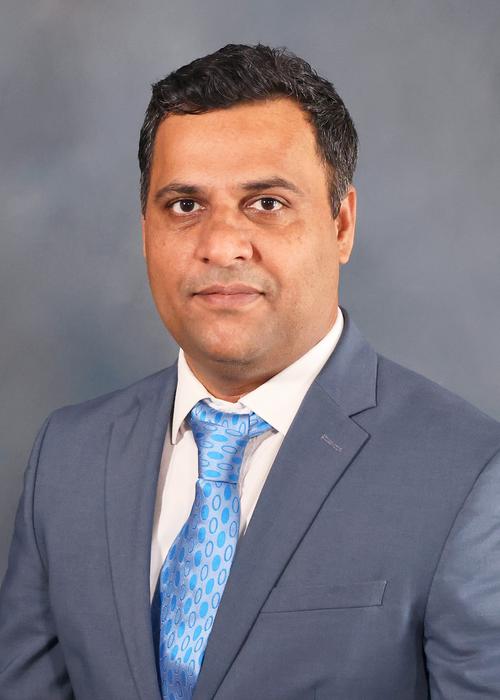STARKVILLE, Miss.—NASA is awarding a Mississippi State University assistant professor a $1.13 million grant to develop a new simulation tool to aid the design of hypersonic vehicles used in space exploration.

Credit: Photo by Kristen Polk
STARKVILLE, Miss.—NASA is awarding a Mississippi State University assistant professor a $1.13 million grant to develop a new simulation tool to aid the design of hypersonic vehicles used in space exploration.
Vilas Shinde of MSU’s Department of Aerospace Engineering won the grant to develop a new flow stability and transition analysis tool, which will aid researchers and aircraft designers in understanding and predicting changes associated with the boundary layer—air flow in the vicinity of an aircraft’s surface during flight.
“Dr. Shinde has demonstrated the relevancy of his research by securing this award,” said Rani Sullivan, professor, department head, and the Bill and Carolyn Cobb chairholder. “The accurate prediction of boundary layer transition is critical for the aerodynamic design of aircraft, especially for the aerothermodynamic design of hypersonic vehicles. We are proud that Dr. Shinde and his collaborators at NASA Langley and the University of Mississippi will have the opportunity to study and develop new technologies to address important issues for aircraft systems.”
The grant, awarded through NASA’s Established Program to Stimulate Competitive Research, will fund Shinde’s research over three years. The award includes $750,000 from NASA, with MSU and the University of Mississippi funding additional $285,000 and $90,000 respectively. The core theoretical and computational development will be performed at MSU in coordination with NASA, while UM will conduct an experimental investigation.
“This is a very competitive award, so the happiest moment for me was when my abstract was selected for the full proposal development,” said Shinde. “I’m fortunate to collaborate with some of the finest scientists in the field.”
Shinde’s proposed project, Development of a Lagrangian Stability Analysis Technique (LagSAT) Framework for High-Speed Boundary Layers, uses Lagrangian modal analysis to efficiently investigate fluid flow stability and transition in complex flow configurations. Shinde said this complements existing NASA simulation capabilities and the technique has several applications, aiding NASA in future-aircraft development and space exploration.
“If we think of a spaceplane re-entering the Earth’s atmosphere, it’s essential for scientists to know how and where the air flow over the vehicle transitions to turbulence,” Shinde said. “Our goal is to develop this technique to provide new insights into the boundary layer stability and transition phenomena, an effort toward making space exploration safer.”
Through the grant, he will partner with researchers at NASA, UM and colleagues within the Computational Aerosciences and Multiphysics Laboratory (CAML) at MSU.
EPSCoR was created to establish collaboration among government, higher education, and industry partners, designed to have lasting improvements in a state or region’s research infrastructure, research and development capacity and national research and development competitiveness.
The Department of Aerospace Engineering is online at www.ae.msstate.edu and on Facebook.
The Bagley College of Engineering is online at www.bagley.msstate.edu and can be found on Facebook, Twitter, Instagram and YouTube at @msuengineering.
Mississippi State University is taking care of what matters. Learn more at www.msstate.edu.



